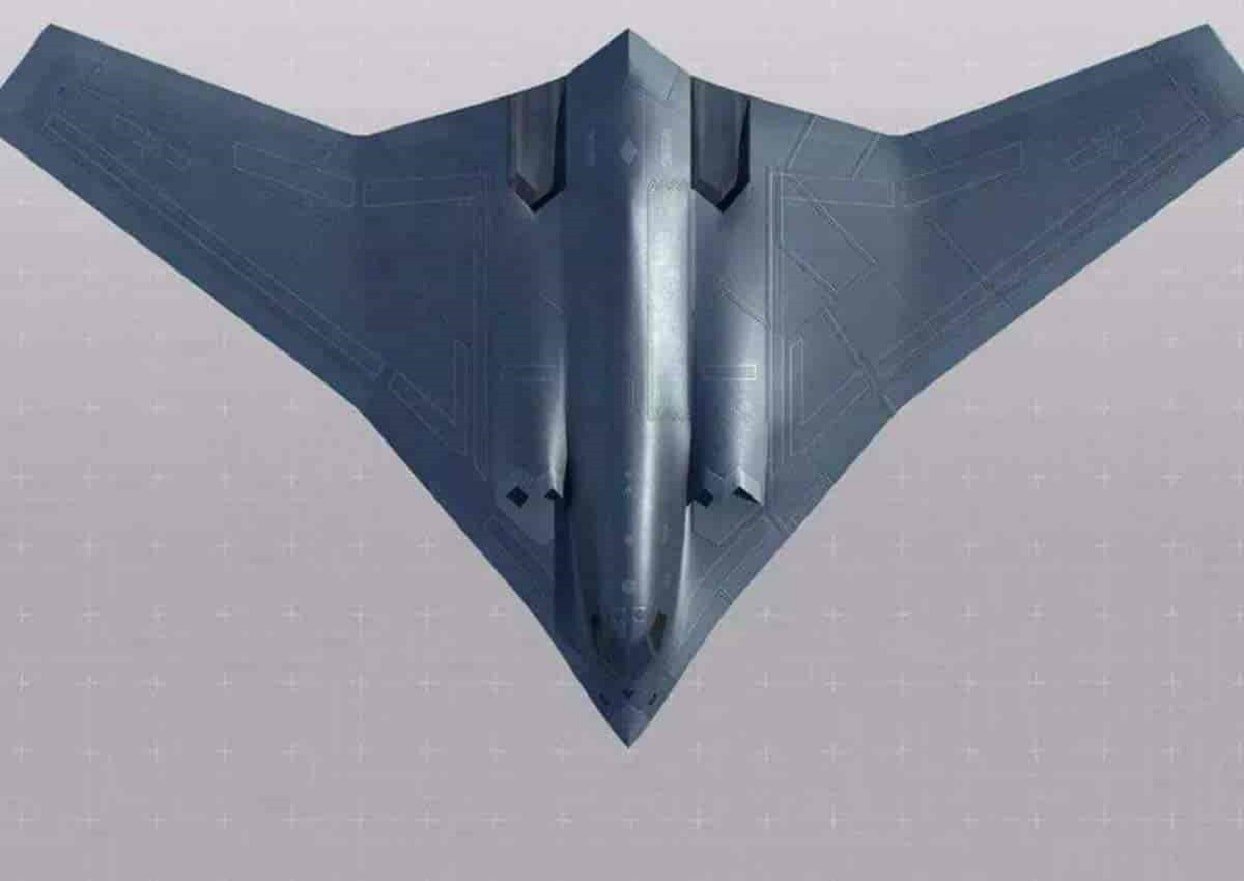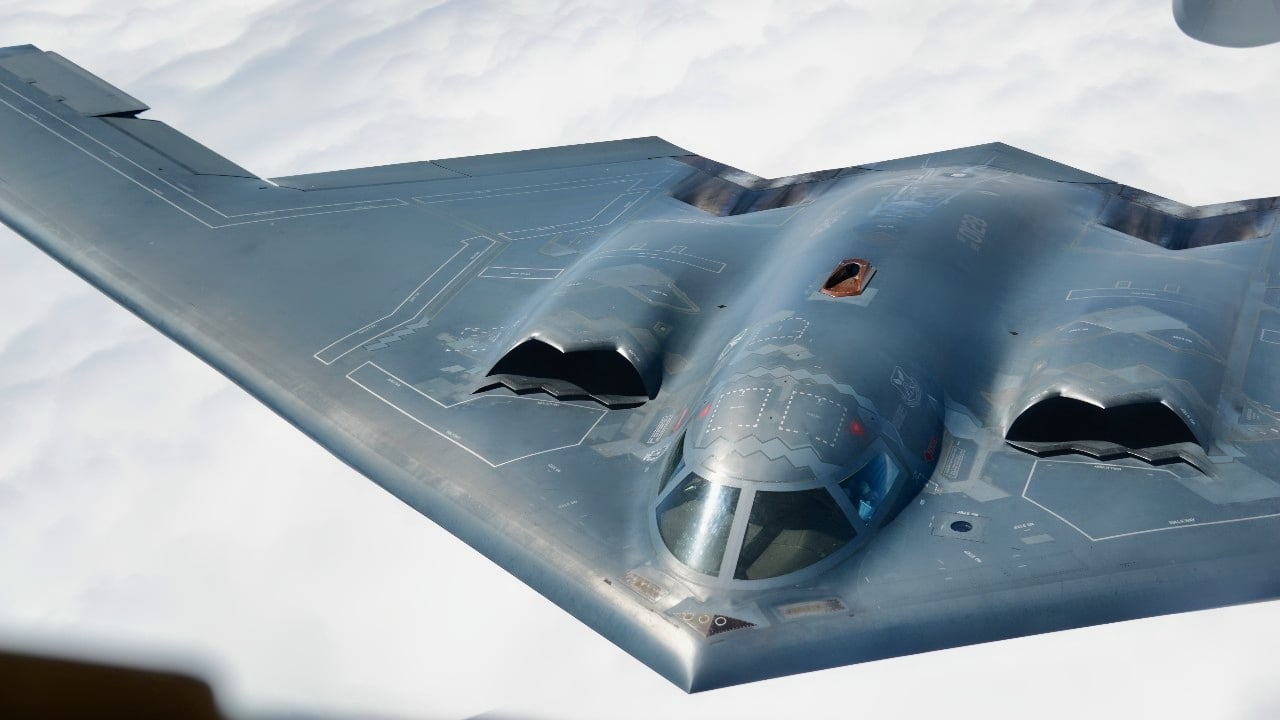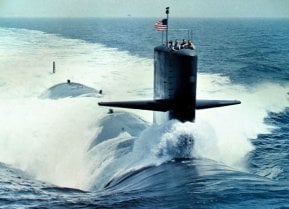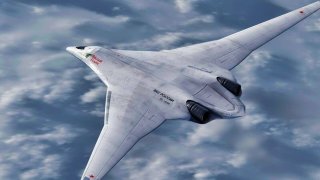Russia's PAK DA Stealth Bomber: The Threat that Boils Down to 4 Words
Russia’s new stealth bomber, the Tupolev PAK DA, is nearing production, potentially reshaping the strategic landscape, especially in the Ukraine conflict. Designed similarly to the U.S. B-2 Spirit, it combines stealth with long-range capabilities (7,500 miles) and can carry up to 30 tons of armaments, including nuclear and hypersonic weapons.
'30 Tons of Armaments': Russia’s new stealth bomber, the Tupolev PAK DA, is nearing production, potentially reshaping the strategic landscape, especially in the Ukraine conflict. Designed similarly to the U.S. B-2 Spirit, it combines stealth with long-range capabilities (7,500 miles) and can carry up to 30 tons of armaments, including nuclear and hypersonic weapons.
-With hypersonic advancements, Russia leads the U.S. and China in deploying these game-changing weapons, challenging Western assumptions about Russia’s industrial resilience.
-While only a few units are planned, the PAK DA’s development highlights Russia’s prioritization of strategic weaponry despite resource constraints and ongoing demands from the Ukraine war.
Russia’s PAK DA Stealth Bomber Comes into View—and It’s a Nightmare for Ukraine
Contrary to what the Western media would have you believe, Russia is not losing its war in Ukraine. Nor is Russia on the brink of collapse. The Russian defense industrial base is humming along at a more efficient clip than are the defense industrial bases of the West.
American and NATO analysts insist that the situation will reverse over time. This seems like the political equivalent of coping. Russia is a self-sustaining commodities power. Thanks to its strong natural resource base, the Russians are able to offer sweetheart trade deals with other nations who, in turn, purchase those Russian resources and help fund the Russian war machine.
As an aside, what is the West producing in any significant quantity to be a threat to Russia?
The PAK-DA
The Russians have now announced that they are moving forward with production of their first long-range strategic stealth bomber, the Tupolev PAK DA. The prototype is nearly finished (and this is with Moscow taking an all-hands-on-deck approach to supporting the Ukraine War, a near-term priority) with six additional units set to be built over the next decade. In this way, the Russians have outpaced even the Chinese, who are still developing the prototype for their own long-range strategic stealth bomber, the Xi’an H-20. Of course, like anything Russia says on military matters involving new weapons platforms, they don't always tell the truth, so skepticism is key.
Nonetheless, over time, as the Russians move increasingly close to China’s growing Eurasian empire (because of the Western position against Russia in the Ukraine War), the eventual cross-pollination of the Russian defense sector with that of China’s (and vice-versa) becomes inevitable. Thus, whatever advances that Russia makes in military technological development will be enjoyed by China.
The design of the PAK DA is likely to be akin to that of the American B-2 Spirit long-range, nuclear weapons-capable stealth bomber. It will likely be a wing-shaped design to cut down on the radar cross-section (the key to stealth). China’s H-20 is a similar design, too. The PAK DA is expected to have a range of 7,500 miles and will likely carry upwards of 30 tons of ordnance. The armaments package will include conventional strike weapons as well as nuclear and hypersonic weapons.

And, yes, Russia outpaces the United States in hypersonic weapons design and real-world use. There are numerous examples of the Russian hypersonic weapons being deployed against the Ukrainians in the war that Russia initiated (after years of NATO provocations).
Both China and the United States remain firmly behind the Russians in the development of these game-changing weapons (although, the Chinese are right behind the Russians whereas the Americans are in third place, unfortunately).
Now, Russia is merging its advances in real-world hypersonic weapons capabilities with its budding stealth capacity. Sure, the PAK DA is likely a generation late to the stealth party (the Americans have had this tech for a while).
But it’s better late than never.
A Complicating Factor for US Strategy
The existence of this prototype and the Russian commitment to building even a handful of these systems (the US has slightly more than a dozen B-2 Spirits and is unlikely to have any meaningful number of B-21 Raiders (anytime soon) shows that the Russian war machine has not been damaged at all by the Ukraine War.

Should even a few of these prototypes be completed in a timeframe before the Ukraine War finally ends (there is no sign that the conflict is abating) then the Ukrainians might finally be forced to admit that they’ve been losing.
Americans who underestimate the capabilities of Russia should rethink their position. Not because the Russians are so much ahead of the Americans. They’re not. But because the Russian Armed Forces have necessarily had to spend considerable time thinking on how best to deploy what are limited resources for achieving real strategic ends. America hasn’t done this in decades. And it shows. The PAK DA is an example of this.
Author Experience and Expertise: Brandon J. Weichert
Brandon J. Weichert, a National Interest national security analyst, is a former Congressional staffer and geopolitical analyst who is a contributor at The Washington Times, the Asia Times, and The-Pipeline. He is the author of Winning Space: How America Remains a Superpower, Biohacked: China’s Race to Control Life, and The Shadow War: Iran’s Quest for Supremacy. His next book, A Disaster of Our Own Making: How the West Lost Ukraine, is due October 22 from Encounter Books. Weichert can be followed via Twitter @WeTheBrandon.
All images are Creative Commons or Shutterstock. All photos are of various submarine styles.
From the Vault
Russia Freaked Out: Why the U.S. Navy 'Unretired' the Iowa-Class Battleships
Battleship vs. Battlecruiser: Iowa-Class vs. Russia's Kirov-Class (Who Wins?)


